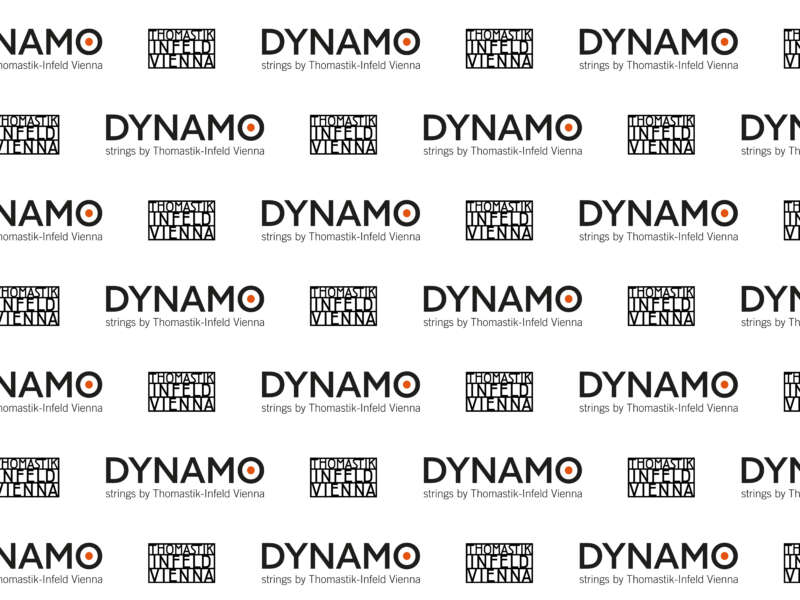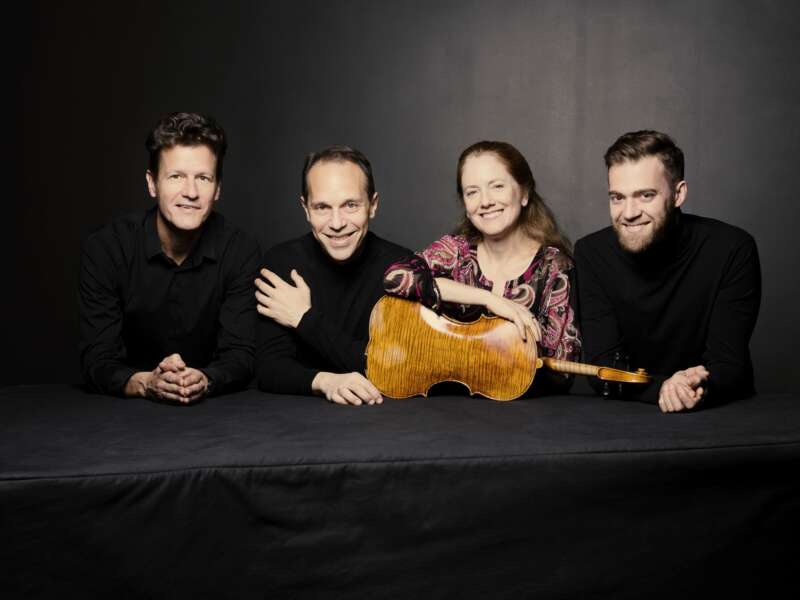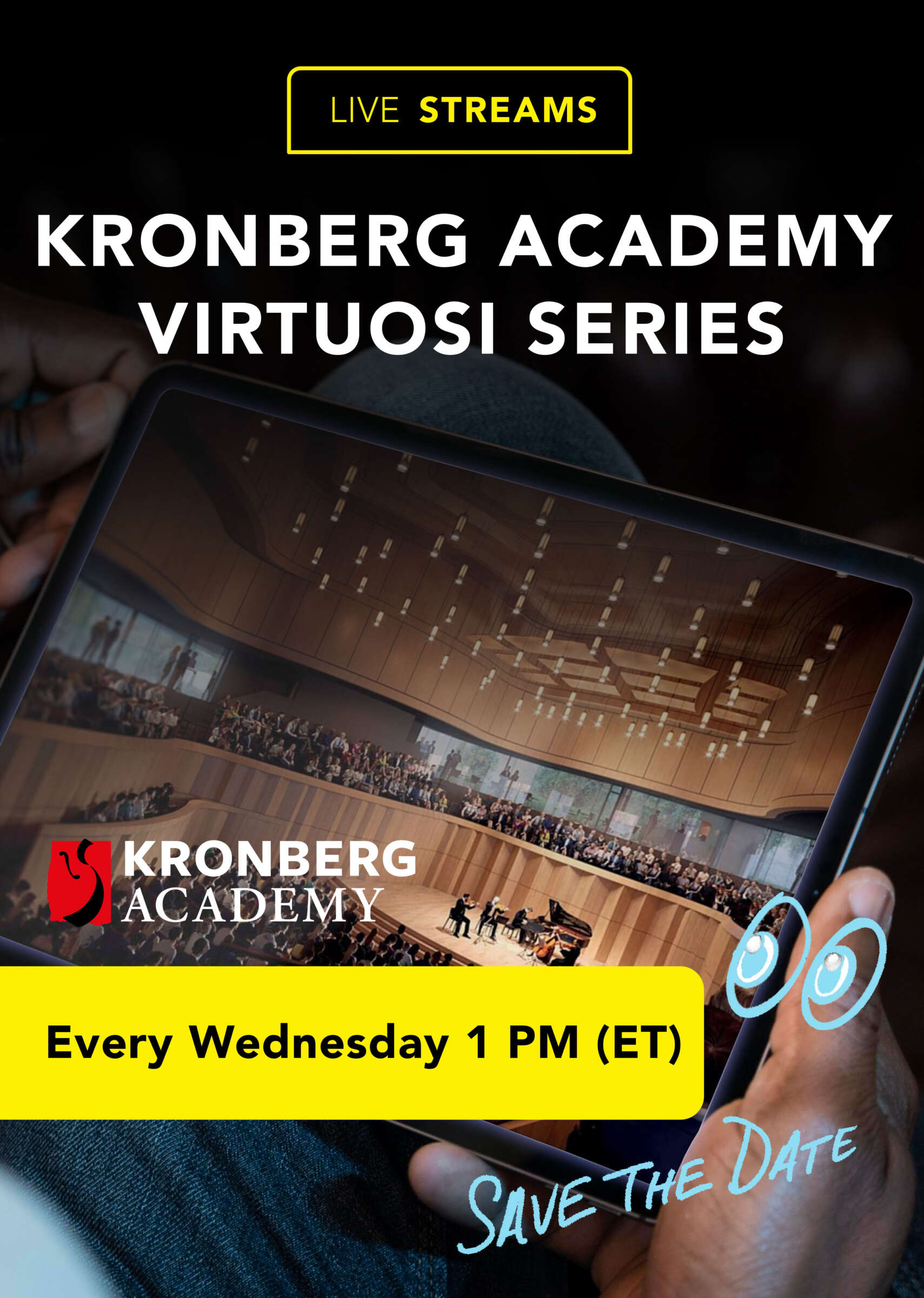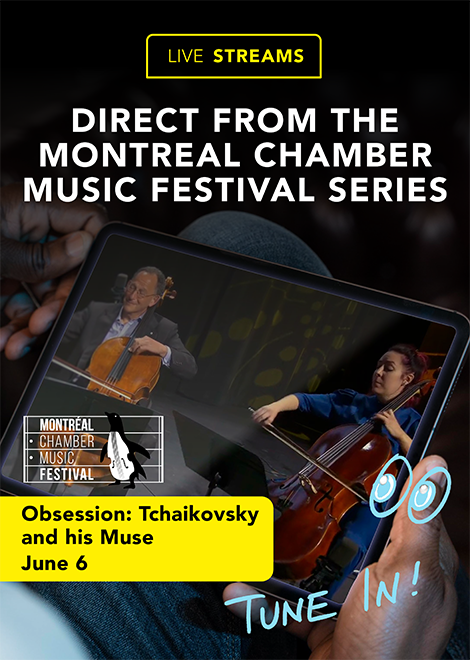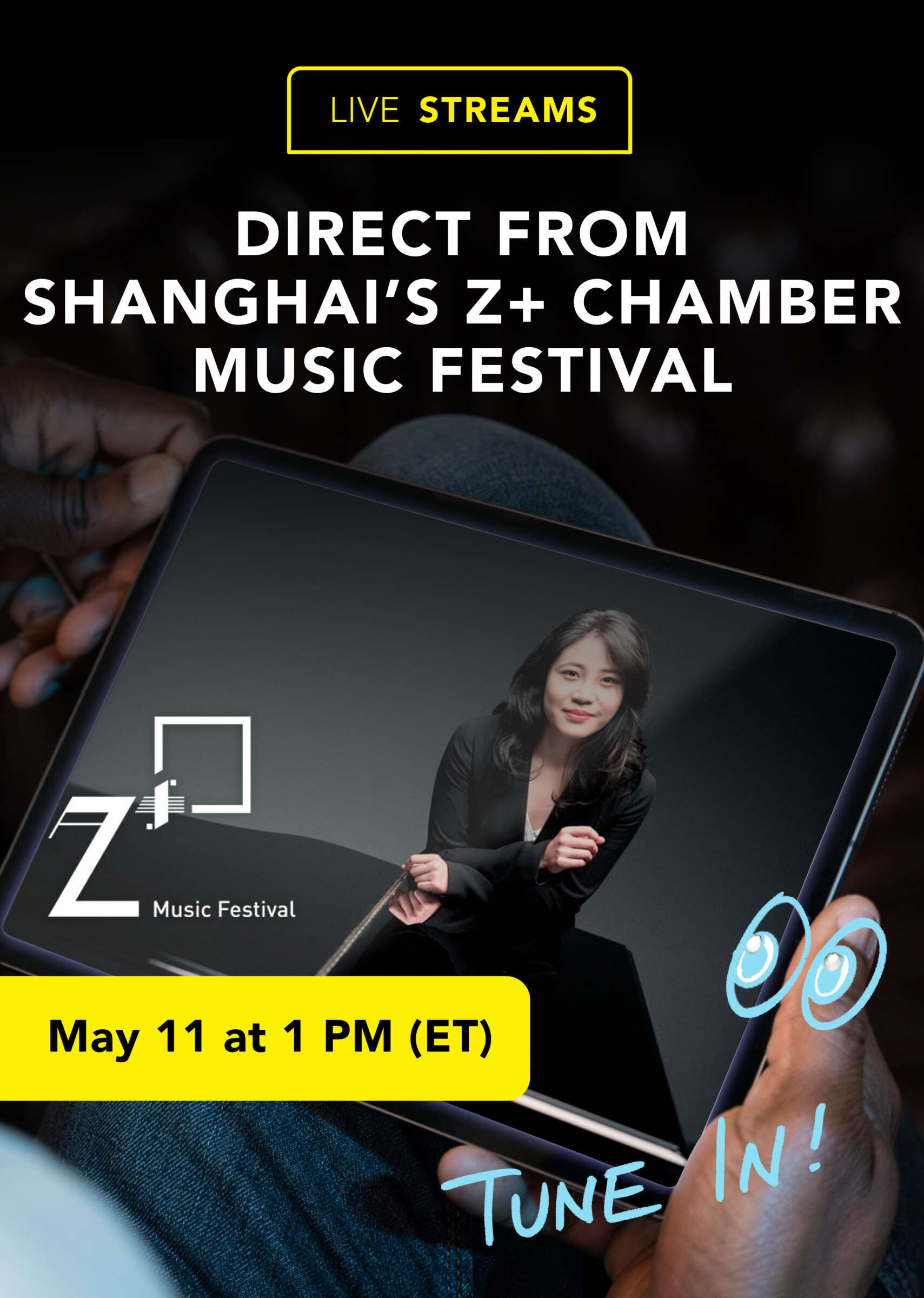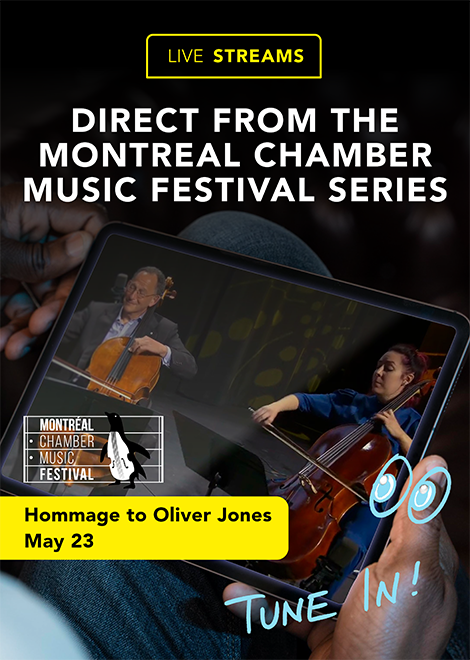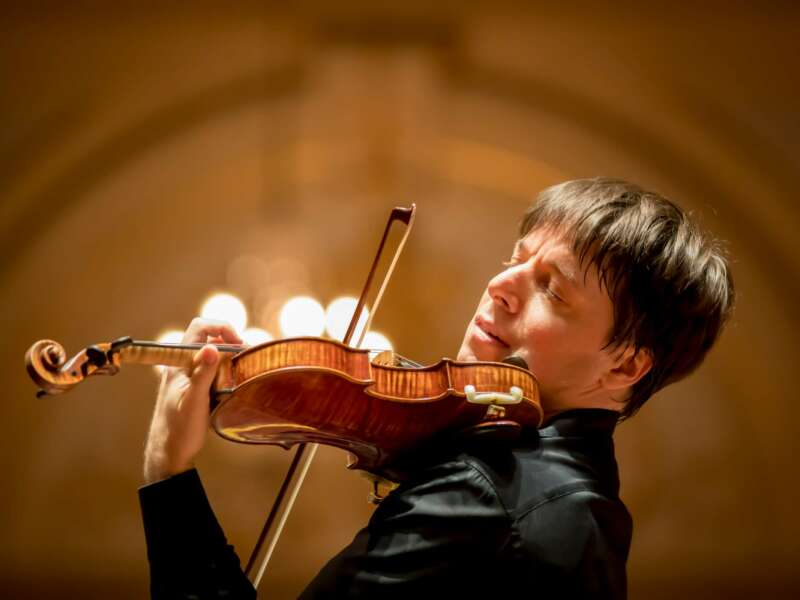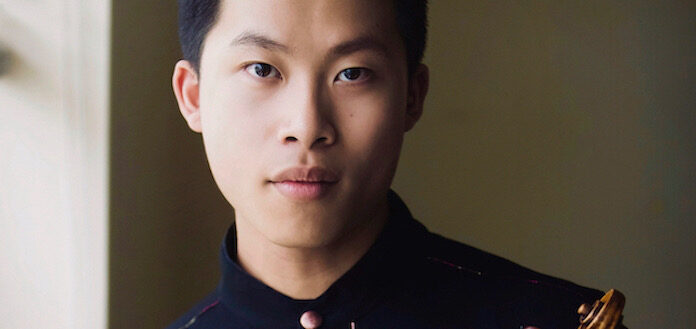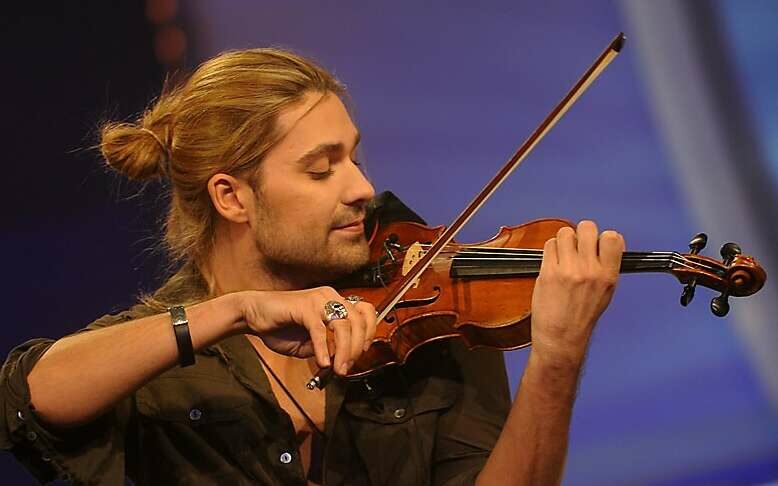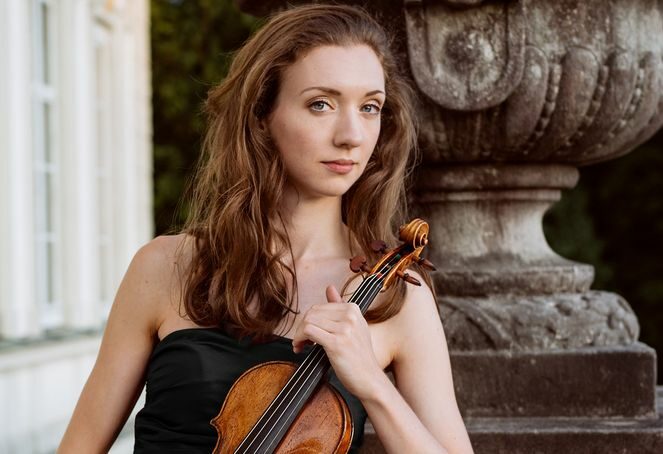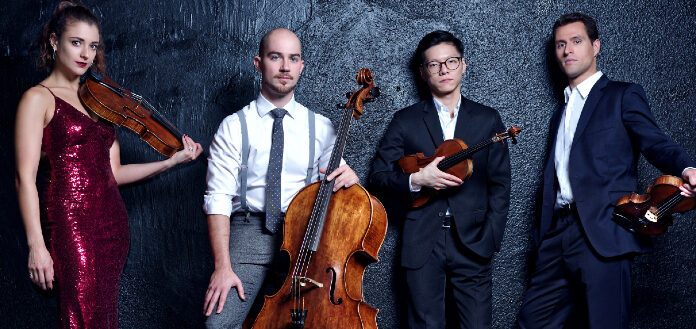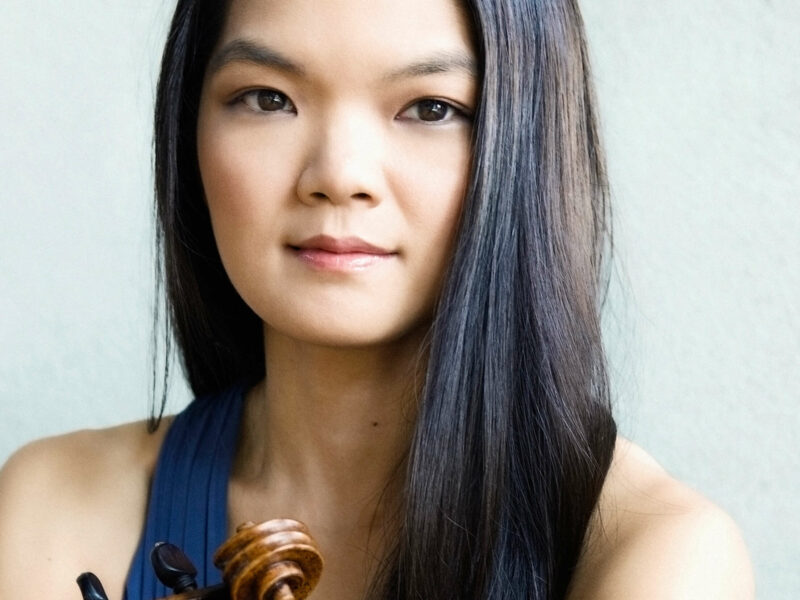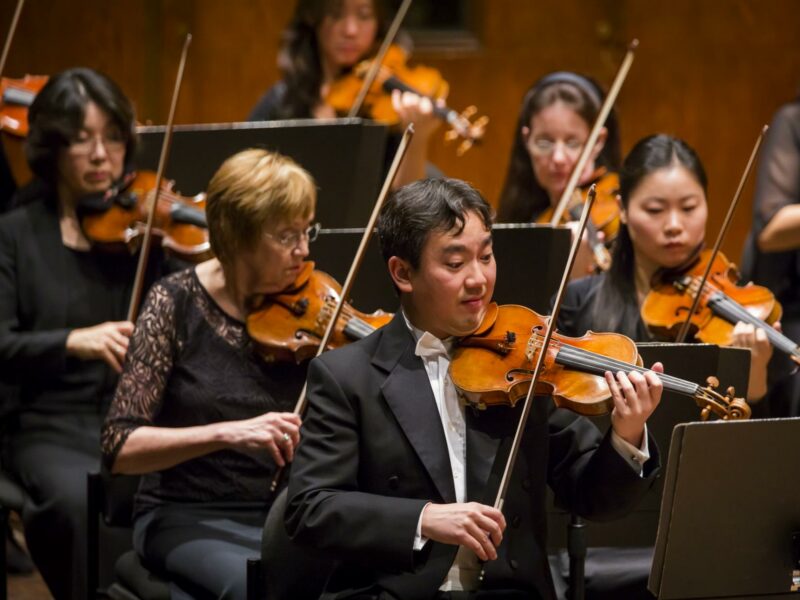VC INTERVIEW | Kara Kane and Tom Rosenberg — Fischoff National Chamber Music Competition
This year's competition will be held virtually from May 14-16 and will be streamed on The Violin Channel.
The Violin Channel recently sat down with the Fischoff National Chamber Music Competition's Executive Director Kara Kane and Artistic Director Tom Rosenberg.
Kara Kane, can you tell us about the Fischoff National Chamber Music Competition? When was it founded and what is its core mission?
In 1973, Joseph Fischoff and the members of the South Bend Chamber Music Society wanted to find a unique way to encourage young music students to study chamber music. They decided to host a chamber music competition, and in the first year, six ensembles participated. 47 years later, 130 ensembles competed, representing 25 different states and 27 nationalities.
Mr. Fischoff and his friends could not have known that their experiment, and abiding passion for teaching young students the fine craft of chamber music, would launch the careers of hundreds, and enhance the lives of thousands of aspiring musicians. Since its founding, more than 7,400 musicians have competed, many of whom have gone on to distinguished careers in music performance and education, including Indiana native and three-time Grammy Award winner, violinist Joshua Bell, the genre-defying contemporary ensemble Eighth Blackbird, and the Pacifica Quartet — winner of the 2021 Grammy Award for Best Chamber Music Performance.
The Fischoff distinguishes itself from all other music competitions by remaining true to its core mission: to encourage and educate young musicians in the discipline and expression of chamber music. Committed to music education, Fischoff partners with its distinguished competition alumni to deliver free, innovative music programs to children and youth. Programs are presented in schools, community centers, and after-school programs. Through these programs, Fischoff has served over 90,000 youth in the tri-state region since 1995; and on an annual basis, reaches more than 4,000 students, many of whom are in under-resourced and Title 1 schools within our community. Fischoff’s programs give local students first-hand, up-close, personal experiences with some of the finest chamber musicians in the world.
Tom Rosenberg, can you tell us more about the different divisions? And how do you choose your overall grand prize winner?
There are actually four divisions. Junior and Senior Winds/Brass and JR and Senior Strings/Piano. Ensembles can have 3-6 instrumentalists. Junior Division ensembles are for instrumentalists 18 years and under. Senior Division groups must have an average age of 30 years or less and no one older than 35.
There are 4 preliminary rounds. The initial round is done by a screening committee. It is common to start with 125 ensembles or more. 12 in each Senior Division are invited to move on and up to 24 in each Junior Division. There are then quarter, semi, and final rounds. Beginning in the semi-finals, the Junior and Senior Division Jurors in each category are combined. After the finals, Gold, Silver, and Bronze medals are awarded in all 4 divisions.
There is then a Grand Prize Concert in which each Senior Division Gold Medal ensemble performs for the combined wind and string juries — who then vote on who should receive the Grand Prize. So, by the time a group has won the Grand Prize, they will have had to convince 4 different sets of jurors that they should be considered for it.
How have you adapted to the COVID-19 situation?
In traditional Fischoff fashion, we have not just gone virtual, but we are also still having the competition as if it were live. This includes broadcasting pre-recorded and assembled video concerts for each round, numerous live zoom meetings with announcements and results of each round, live seminars and masterclasses by members of our Jury via zoom, virtual performances in local schools, virtual soirees, zoom meet-ups between jurors and ensembles to discuss their performances, and more. We also made a decision to lower our repertoire requirements with the belief that live rehearsing would be more challenging this year.
With the competition being held online this year, how do you ensure fairness throughout? Are considerations made for some applicants not having access to the same facilities and recording equipment?
The Fischoff is known for its fairness. This is achieved in many ways, but first and foremost, it relies on the integrity of the individual jury members and how they respond to the specific rules they are asked to follow. To be asked to be a juror, careful consideration is given not only to their deep knowledge in the field but also for their integrity and interest in the educational goals of the Fischoff.
Whether virtual or in-person, musicians and coaches are not allowed to have contact with any of the jurors. Groups are only identified to jurors through a number — no names or affiliations are given. We also have a conflict of interest policy that requires both jurors and musicians to declare if they are known to one another, and in what way. Screeners and jurors are instructed to try to see past the video and sound limitations some of the videos may have. However, this is why a live competition is fairer. In a “normal” year those disparities can exist only in the preliminary screening round. Once everyone is at the actual competition, all the groups in any category are performing in the same acoustic setting.
What are you most looking forward to at this 2021 edition?
It is always interesting and will be exciting to see who this jury chooses as prize winners. For the Junior Division winners, it will be a thrill. For the Senior Division winners, it could be a life-changing event that allows them that first foothold in starting a career together.
It is our hope that despite the pandemic, the musicians who enter the Fischoff feel glad that they took part and that it pushed them to be their very best. Whether or not they are prize winners, we hope that the efforts we have made to personally connect them with the jurors and other musicians will succeed in this necessary, but sometimes awkward, “virtual” format.
Kara Kane, what can the winners expect to receive? And how do you try to support your laureates on-going?
We offer opportunities to all our competitors whether they place as a medalist or not. When accepted to the quarterfinals, Senior ensembles are offered the opportunity to perform in private soirees or pop-up concerts around town. With Covid, we have hosted a limited number of virtual soirees this year.
Our Junior ensembles are offered the opportunity to serve as Ambassadors for our Peer Ambassadors for Chamber Music program. In a typical year, we have 5-11 ensembles visiting elementary schools on the Friday of the competition sharing their music, stories, and igniting the fire in the next generation of music makers. This year we created Fischoff's Chamber Music Alive!, an online introduction to chamber music and the many musicians and instruments that create it. We also are coordinating live Q & A classroom visits between some of our ensembles and our local elementary schools.
Fischoff offers $42,800 worth of prize money plus performance opportunities in the US and Italy. Gold, Silver, and Bronze medal winners in each of our Junior Wind/Brass and String/Piano divisions as well as Senior Wind/Brass and String/Piano divisions receive prize money. Additional monetary prizes are given to the top Brass Ensemble in both the Junior and Senior Division, as well as the top local Junior Division chamber ensemble.
Junior Division winners are featured on From the Top, the preeminent showcase for young musicians.
The Fischoff awards tours for both Gold Medal ensembles in the Senior Division Winds/Brass and Senior Division Strings/Piano the fall following the competition. The ensembles will present concerts and educational programs to more than 5,000 children, youth, and adults throughout the U.S.'s Midwest. The Senior String/Piano Gold Medalist will be awarded a video recording prize at Guarneri Hall, Chicago, sponsored by Darnton & Hersh Fine Violins.
The Fischoff grants the Grand Prize Medal winner a $10,000 cash prize plus a trip to the Emilia Romagna Festival one year following their win. The Emilia Romagna Festival arranges approximately four to six concerts each summer, hosted in hill-top villages and small towns throughout the Emilia Romagna region. The Festival provides each ensemble with housing, transportation, and performance opportunities in historic villas, castles, village chapels, city churches, and even an ancient farm courtyard.
Tom Rosenberg, what role do you see chamber music playing in society?
Creativity and all of the arts are vital to a healthy society. Chamber music is one of those genres that allows the performers and the audience to have a personal connection. Not everyone wants that, but for those who do, it is exciting to see up close the individual skill and emotions the musicians put into the music they are playing, therefore bringing the thoughts of the composer to life.
In the classical music world, chamber music is a great bridge to the past and the brilliant minds of the composers of such great music. But, it also provides an economically viable way for living composers to have their work learned and performed.
Kara Kane, how can we watch this year’s edition of the competition?
Typically you'd have to come to South Bend, Indiana, where we host the competition in the beautiful DeBartolo Performing Arts Center on the campus of the University of Notre Dame.
However, this year our website, fischoff.org, will serve as the main hub for our competition weekend festivities. Competition results will be shared on social media — Facebook and Instagram — allowing audiences to track musicians through our quarterfinal, semifinal, and final rounds. Playlists of the music from our sixty exceptional ensembles will be shared on our Fischoff YouTube Channel. On Sunday, May 16, at 2:30 pm (ET) tune in for the LIVE Award Ceremony announcement. This will be immediately followed by a presentation of our annual Gold Medal Winner Concert. We'll patch in live our Senior Division Winners for brief interviews and then do a live announcement of the Grand Prize winner. You can catch this on fischoff.org and on The Violin Channel.
may 2024
june 2024



